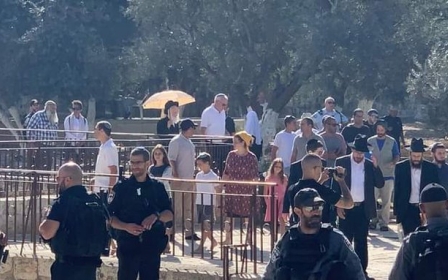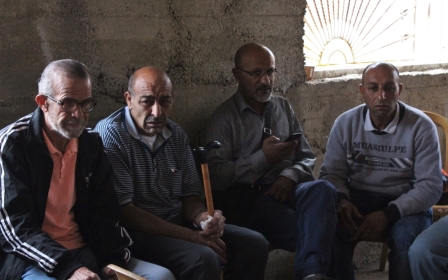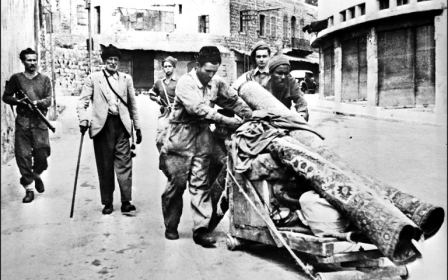Coronavirus: Streets deserted as Israelis mark Yom Kippur during lockdown
Yom Kippur, one of the holiest days for Jews, normally brings much of Israel to a standstill, with businesses shut to mark the holiday and roads empty.
But with lockdowns imposed across the country because of the coronavirus, deserted roads have become the norm as Israel battles with a second wave of Covid-19.
Israel entered its second-wave lockdown on 18 September after a surge of new cases had hospitals worrying about the strain on admissions.
The country of nine million people has logged at least 1,441 deaths from the virus.
New MEE newsletter: Jerusalem Dispatch
Sign up to get the latest insights and analysis on Israel-Palestine, alongside Turkey Unpacked and other MEE newsletters
The virus meant the first effective shutdown for many synagogues since Israel was founded, with health officials ordering prayers to be held in small socially distanced groups, Reuters reported.
"At this period of atonement and forgiveness, I would like to ask this of all citizens of Israel," the head of the pandemic taskforce, Ronni Gamzu, said in a letter quoted by Israeli media.
"And my apologies to everyone in Israel - security, traditional, religious or ultra-religious - for the holiday period that will be constrained this year."
Closures were also imposed on entry and exit from the occupied Palestinian territories, as during most Israeli holidays
Middle East Eye delivers independent and unrivalled coverage and analysis of the Middle East, North Africa and beyond. To learn more about republishing this content and the associated fees, please fill out this form. More about MEE can be found here.




